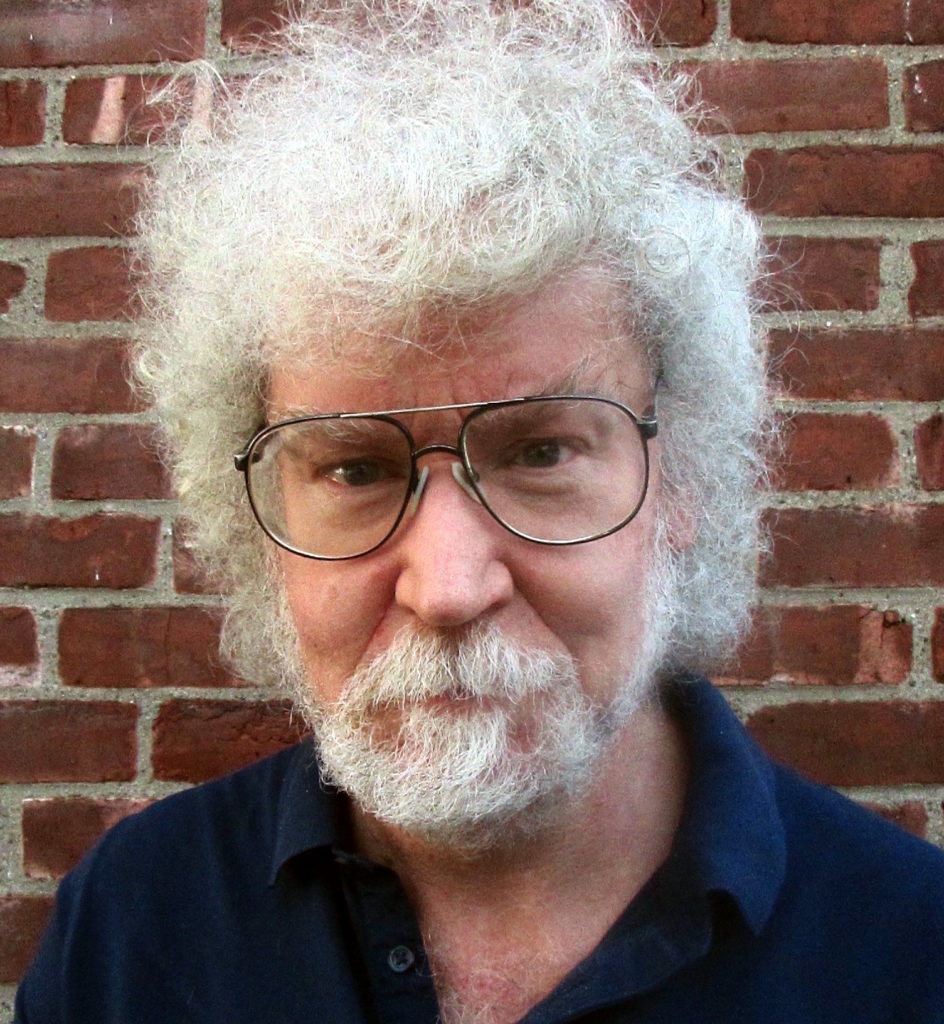By Dave Astor
NSNC Archivist

One of the many interesting speakers at our June 11-14 conference in Tulsa will be St. Louis Post-Dispatch metro columnist Tony Messenger, winner of the 2019 Pulitzer Prize for commentary. The writer, now 53, earned the award for a searing series of columns that, in the words of the Pulitzer jury, “exposed the malfeasance and injustice of forcing poor rural Missourians charged with misdemeanor crimes to pay unaffordable fines or be sent to jail.” Tony movingly focused on specific people who were affected while also giving a comprehensive overview of the heartbreaking “de facto debtors’ prison” problem. Here’s an email interview conducted with Tony late last month.
Dave Astor: What do you plan to talk about in Tulsa?
Tony Messenger: I plan to talk about the process of the series and how it came together, specifically some of the decisions – and mistakes – I made along the way that made it into something that was much bigger than I ever imagined as I started writing about the debtors’ prison issue.
Dave: Have you been to Tulsa much? If so, what do you think of it?
Tony: I’ve been to Tulsa a few times and have actually been thinking about it – and writing a bit about it – in the past year or two because Tulsa specifically and Oklahoma generally have many of the same problems with the criminalization of the poor that exist in Missouri. In fact, I think the problem in Oklahoma might be worse, where people with minor crimes end up caught in a cycle of debt created by fines and fees and the attempt to collect them upon punishment of more jail time if the debt can’t be paid.
Dave: Any thoughts about the NSNC?
Tony: While it’s been a while since I was an active member of the NSNC, it’s an organization close to my heart. When I was a metro columnist at the Columbia Daily Tribune, the organization helped connect me to other columnists around the country who helped provide guidance, leadership, and friendship to me as my column-writing career was taking off.
Dave: Your reaction to winning the 2019 Pulitzer Prize for commentary? Did you think you had a chance?
Tony: It was truly incredible. I wanted to think I had a chance. Anytime you have the opportunity to do important journalism that changes laws and contributes to a state Supreme Court decision, you know that the impact you’ve had is important, and might be recognized by your peers. But until it was announced I had no idea, and that really helped make that day one I’ll never forget. It’s the first – and probably last – day I walked around the newsroom drinking from a bottle (or two) of champagne. I’ll never forget the joy I saw in my colleagues who all shared in the joy of the Post-Dispatch’s 19th Pulitzer.
Dave: I read your 10 powerful Pulitzer-winning columns about lower-income rural Missourians charged with misdemeanor crimes being hounded to pay onerous fines or face prison. How did that series come about? Were the columns difficult to research and write? How painful was it to immerse yourself in so much injustice? How important was it to focus on specific victims of this along with giving an overview of the problem?
Tony: The series really happened organically. I had written a couple of columns about one judge in St. Francois County who had been overturned by the Supreme Court for sending people to prison for their failure to pay court costs. And so when I got that first tip about Victoria Branson, I wrote about her, actually in 2017. Then, she texted me at Christmas that she was out of prison. My column about her in January 2018 became the first of what would be my Pulitzer entry. But it wasn’t until months later that I really realized what I had. One column led to another and so on, before I realized how many people this was affecting and the fact that it was a thread in a truly national story. It was the focus on the people that really made a difference. Lawmakers saw their neighbors in the story and realized they had to do something about it.
Dave: What reforms did the columns help bring about?
Tony: Two very important things happened. First the Missouri Supreme Court ruled on two of the cases I had written about and said that it is illegal under existing state law to jail somebody simply because they couldn’t afford to pay their previous bill for a jail stay. (Yes, at the core of this is that rural Missouri counties charge defendants for their time in jail.) Then the Legislature passed a law that said there could be no criminal repercussions for the failure to pay the jail board bill or any other court costs. The remedy is civil. People cannot be threatened with more jail time for failure to pay. Almost immediately it had a massive effect with many county jails freeing up space when they had to stop holding people who were there primarily because they were poor.
Dave: Why are columns of the sort you wrote important? Any thoughts on how newspapers are struggling but can still make a difference with writing such as your Pulitzer-winning pieces? Any thoughts on how there are fewer newspaper staffers to do this kind of work and given time to do this kind of work?
Tony: I think sometimes we spend too much time as journalists listening to “very important people” like elected officials or their highly paid consultants, and not enough time listening to people who are affected by our daily institutions. Each of the people I wrote about broke the law. But they were still citizens of the state who didn’t deserve to have their civil rights violated. One of the interesting things I discovered is that the people who were victims of this debtors’ prison scheme all knew it was wrong. But nobody had listened to them before.
Dave: What did you do with the $15,000 Pulitzer award?
Tony: I spent a fair amount of it on our trip to New York, taking my family so they could experience the city. It was a memorable (but expensive) trip!
Dave: How important is local column writing? And do you occasionally delve into less-local topics?
Tony: I rarely write about national politics any more. People care about what’s happening in their local communities and the stories there transcend left-right politics. It saddens me that the role of the “metro columnist” nationally seems to have been diminished. There aren’t as many of us as there used to be and I think that’s a shame.
Dave: You write four columns a week? How challenging is that frequency?
Tony: I like the rhythm of four columns a week. It allows me to always be able to react to news as it’s breaking even while working on more investigative type projects. Readers tell me “I read you every day.” Well, that’s not entirely true, but it feels that way sometimes. I never lack for ideas, only time.
Dave: You joined the St. Louis Post-Dispatch in 2008 (starting as capital correspondent and political columnist), became editorial page editor from 2012 to 2016, and then metro columnist? How did those job changes come about?
Tony: I had always had my foot in column and opinion writing, even as a young journalist when I was editor of weekly newspapers. And so when I took the job working from the capital, it was important to continue column writing. I wrote a column on political matters about once every couple of weeks. When there was an opening on the editorial page I jumped at it, but the metro columnist job was always where I thought I was destined to be. When our longtime metro columnist semi-retired (he still writes once a week), I jumped at the opportunity. It’s worked out pretty well.
Dave: Born and raised in Colorado?
Tony: Yes, born and raised in Colorado and started my journalism career there in small town weeklies. Three of my six kids still live there and seven of my eight grandchildren.
Dave: Anything else you’d like to say?
Tony: I look forward to connecting with old friends in Tulsa!
Register for the Conference HERE.
Dave Astor writes the weekly “Montclairvoyant” topical-humor column for Baristanet.com, blogs weekly at DaveAstorOnLiterature.com, and is the author of “Fascinating Facts About Famous Fiction Authors and the Greatest Novels of All Time: The Book Lover’s Guide to Literary Trivia.”


